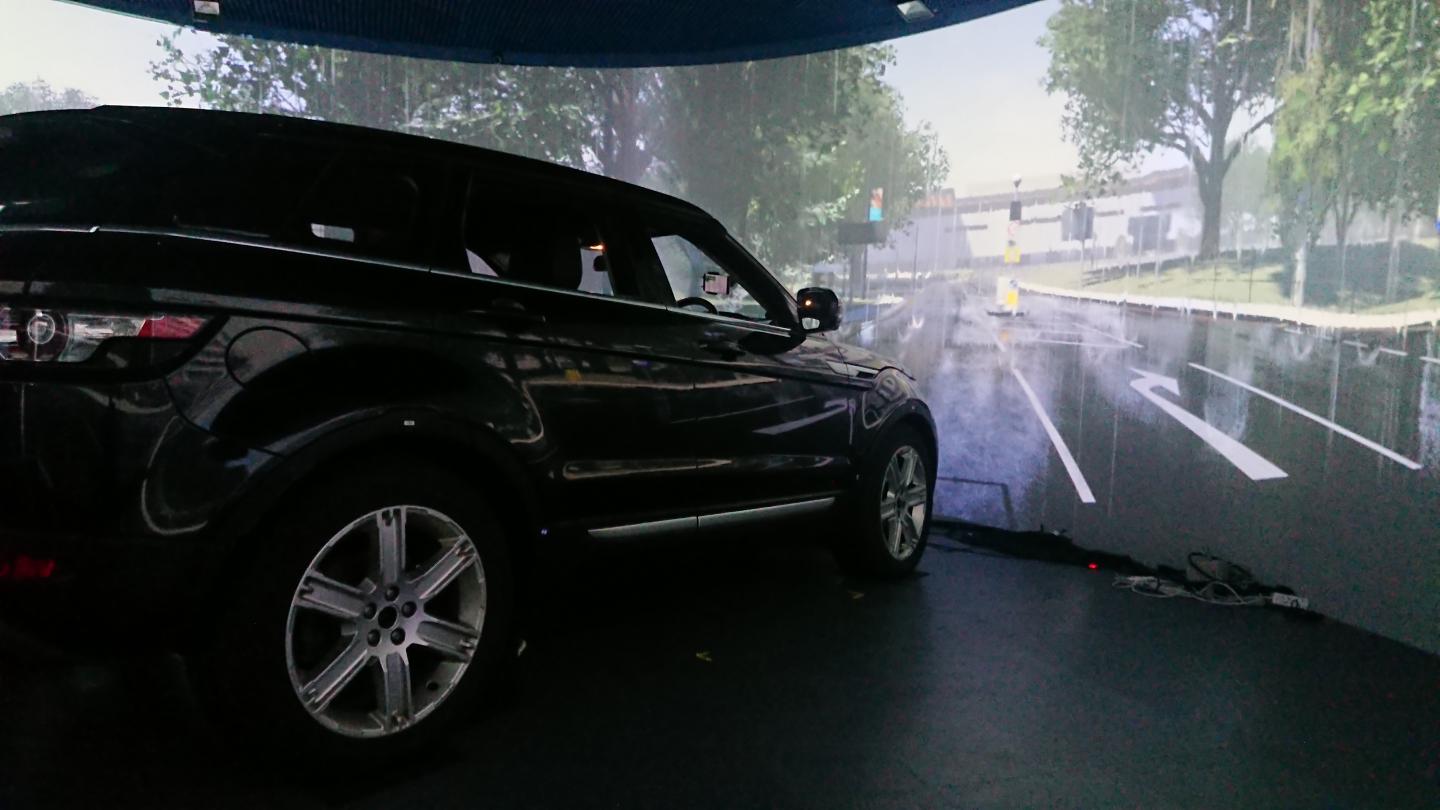
Credit: WMG, University of Warwick
- Future fully autonomous vehicles will rely on sensors to operate, one type of these sensors is LiDAR
- LiDAR sensor’s effectiveness in detecting objects at a distance in heavy rain decreases, researchers from WMG, University of Warwick have found
- Researchers used the WMG 3xD simulator to test the sensor detection of objects in rain, simulating real world roads and weather
High level autonomous vehicles (AVs) are promised by Original Equipment Manufacturers (OEMs) and technology companies to improve road safety as well as bringing economical and societal benefits to us all.
All high-level AVs rely heavily on sensors, and in the paper, ‘Realistic LiDAR with Noise Model for Real-Tim Testing of Automated Vehicles in a Virtual Environment’, published in the IEEE Sensors Journal, researchers from the Intelligent Vehicles Group at WMG, University of Warwick have specifically simulated and evaluated the performance of LiDAR sensors in rain.
Using the WMG 3xD simulator, researchers tested an autonomous vehicle’s LiDAR sensors in different intensities of rain, driving around a simulation of real roads in and around Coventry. The simulator is a key part of testing autonomous vehicles, as they have to have been on several million miles of road, this therefore means that they can be tested in a safe environment that is the same as a real road.
LiDAR sensors work by emitting numerous narrow beams of near-infrared light with circular/elliptical cross sections, these can reflect off objects in their trajectories and return to the detector of the LiDAR sensor.
One of the issues of LiDAR sensors is the degradation of its performance in rain. If a LiDAR beam intersects with a raindrop at a short distance from the transmitter, the raindrop can reflect enough of the beam back to the receiver, therefore detecting the raindrop as an object. The droplets can also absorb some of the emitted light, degrading the range of performance for the sensors.
Using different probabilistic rain models (none, to different intensities) researchers made it ‘rain’ the WMG 3XD simulator, and measured the LiDAR sensor’s responses to the rain, making a record of false positive and false negative detections.
They found that as the rain intensity increased it became more difficult for the sensors to detect objects. In a short range from the vehicle (up to 50m), several rain drops were erroneously detected. However in a medium range, (50m-100m) this had decreased, but as rainfall increased to up to 50mm per hour, the sensors detection of objects decreased in conjunction with a longer range in distance.
Dr Valentina Donzella, from WMG, University of Warwick comments:
“Ultimately we have confirmed that the detection of objects is hindered to LiDAR sensors the heavier the rain and the further away they are, this means that future research will have to investigate how to ensure LiDAR sensors can still detect objects sufficiently in noisy environment.
“The developed real-time sensor and noise models will help to further investigate these aspects, and may also inform autonomous vehicles manufacturers’ design choices, as more than one type of sensor will be needed to ensure the vehicle can detect objects in heavy rain.”
###
Media Contact
Alice Scott
[email protected]
Original Source
https:/
Related Journal Article
http://dx.





